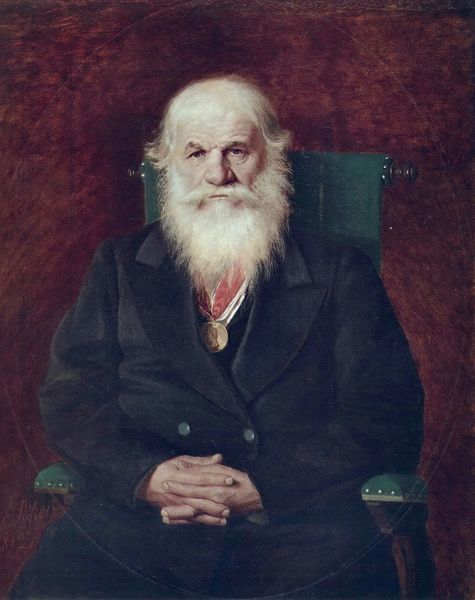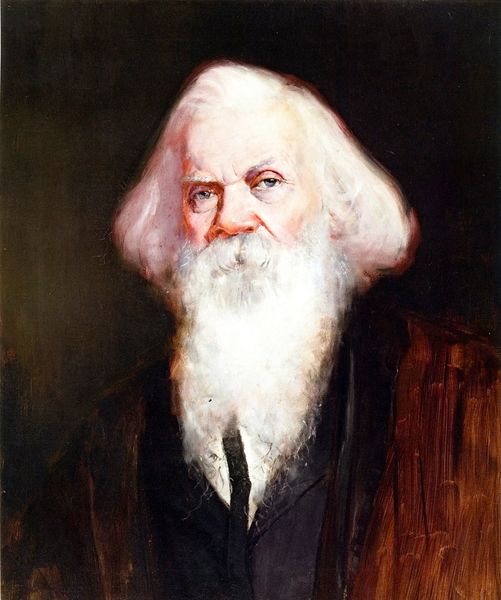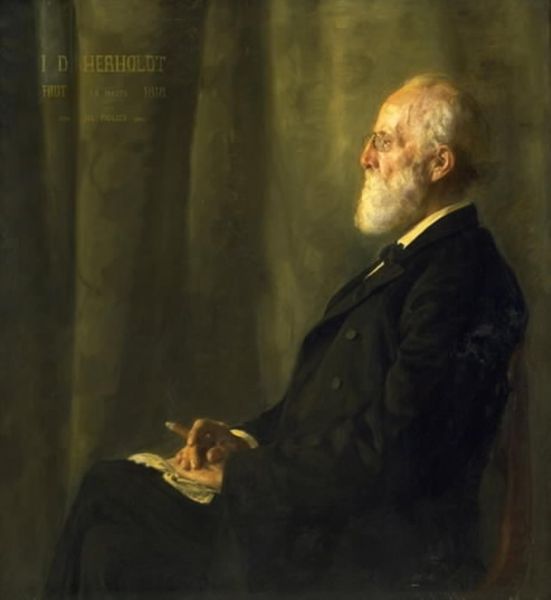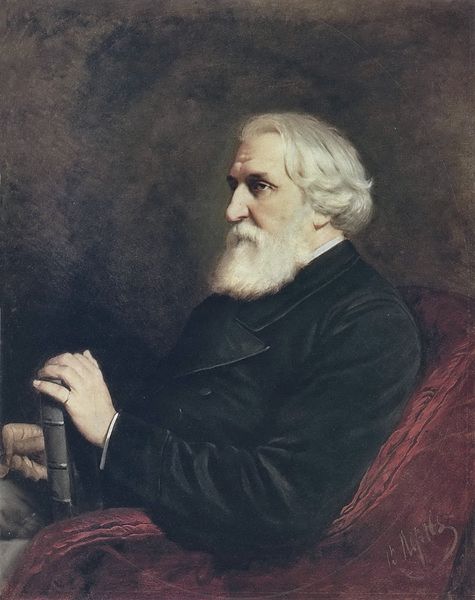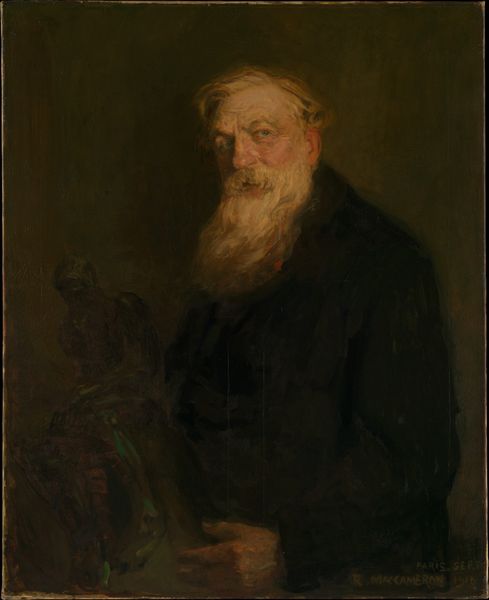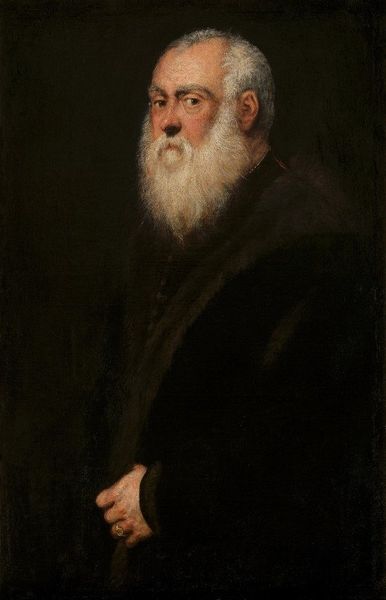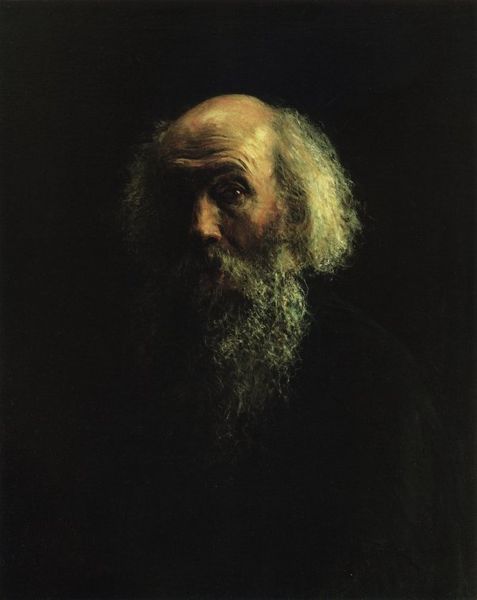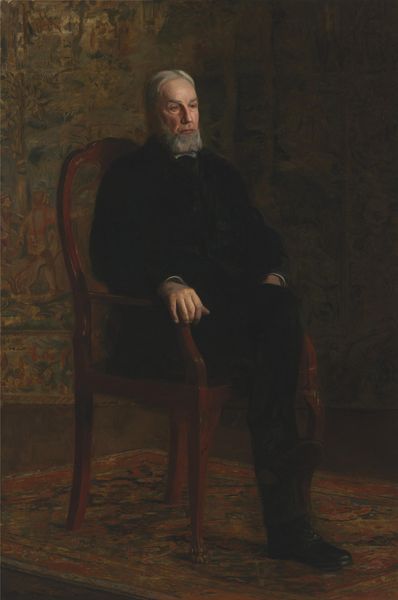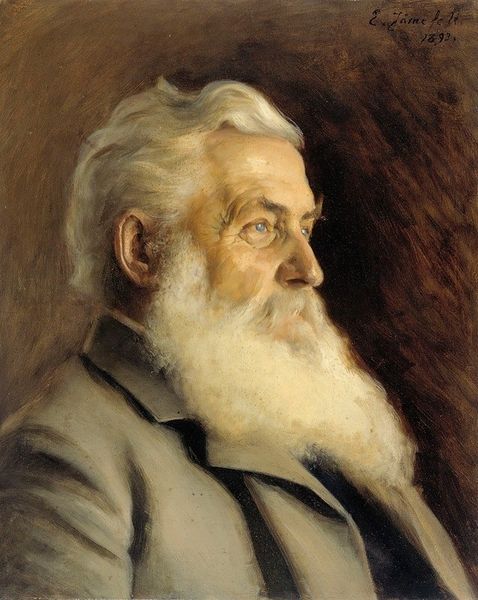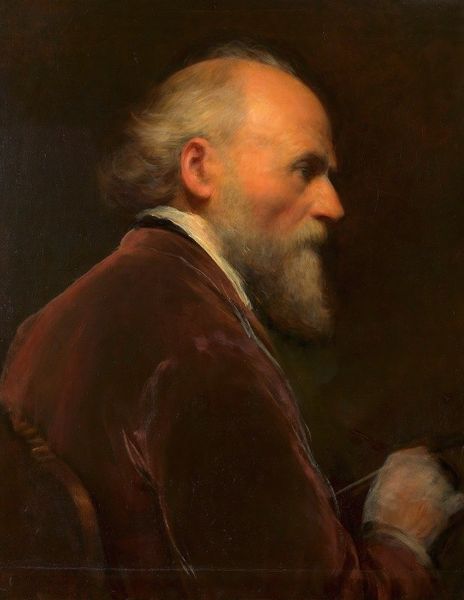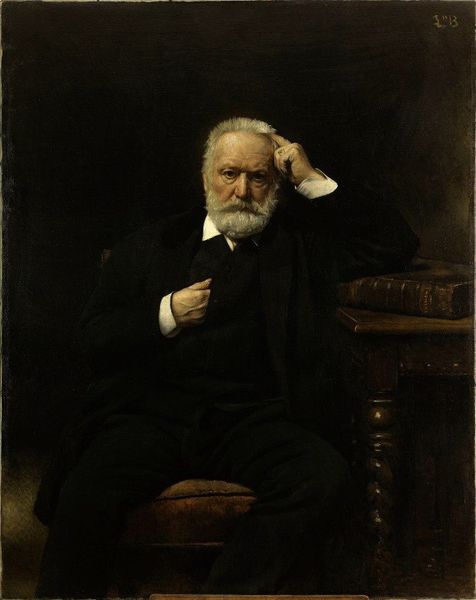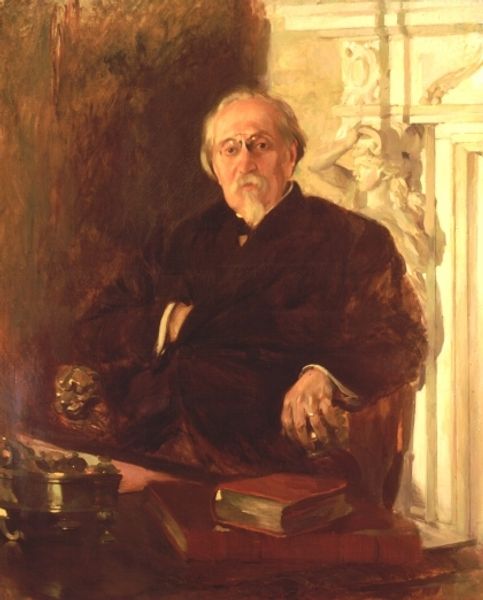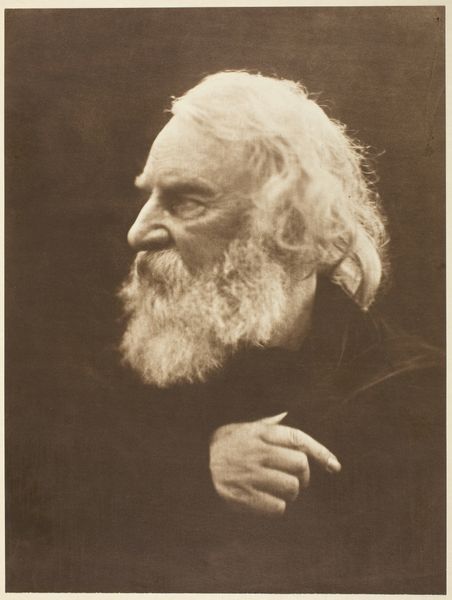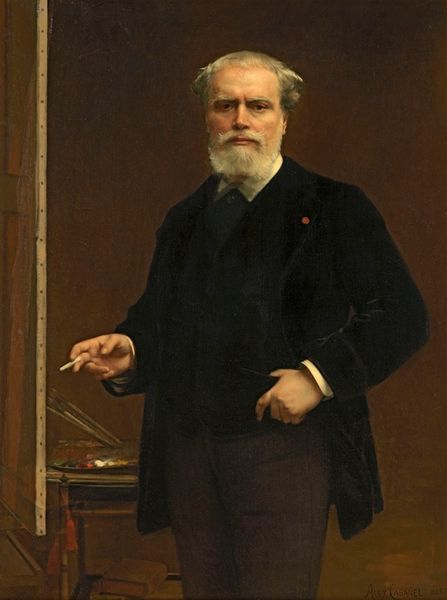
Dimensions: 125.7 x 96.5 cm
Copyright: Public domain
Curator: Standing before us, we have John Collier's portrait of Charles Darwin, painted in 1883, a year after Darwin’s passing. Editor: My first impression? Grave. Melancholy. The subdued palette only amplifies this feeling. And he almost blends into the dark backdrop like a specter! Curator: It’s definitely a far cry from some of the earlier, more... spirited portrayals of him. Here, the image projects immense gravitas. Collier was aiming to capture the intellectual weight Darwin carried. Editor: Absolutely. You see a man burdened by the implications of his own theories. It makes me wonder about the psychological toll of challenging established orthodoxies, the conflict with creationism that he knew he'd face. He holds his hat—it could represent the social conventions he was about to throw to the winds. Curator: Oh, I like that interpretation. And look at his eyes – there’s a deep knowing there, maybe even a hint of sadness. It strikes me that it could just as easily be the result of spending years poring over barnacles as it is a rumination about social impact! The man certainly had a specific focus. Editor: Barnacles AND challenging the Church, Curator! Don't diminish his wider contribution to, let's say, social discourse? His ideas became entangled with the existing political context – colonization, eugenics – a context he wasn't necessarily thinking about, but was undeniably present at the time of their release. Curator: Point taken, completely. It’s easy to forget the tumultuous context these scientific discoveries existed within. There he stands—our somber Darwin—a lightning rod in a velvet cloak. Editor: Exactly. It's a potent image, loaded with both personal introspection and broader socio-political implications, showing that science, even in the form of something seemingly removed, always intersects with our collective realities. Curator: Looking at this portrait has me pondering on the intricate dance between art and science, the seen and unseen… and that the implications can take on a life of their own. Editor: Indeed, Curator. I find myself grappling with the continued relevance of his work in the face of contemporary battles surrounding science, race, and belief. Food for thought, certainly.
Comments
No comments
Be the first to comment and join the conversation on the ultimate creative platform.
